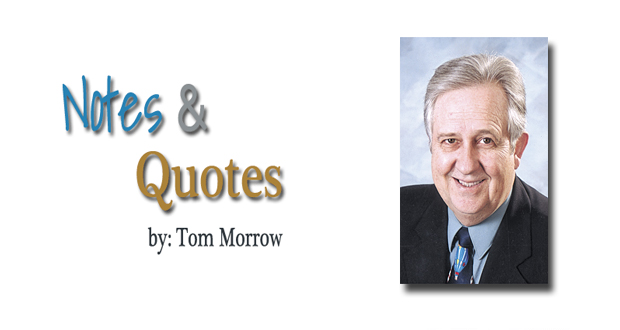A Colorful, Behind the Scenes Politician
By Tom Morrow
Robert S. Strauss was a figure in American politics and diplomacy whose service dated back to years before Lyndon Baines Johnson became president. He worked on LBJ’s first congressional campaign in 1937. By the 1950s, he was associated in Texas politics with the faction of the Democratic Party led by U.S. Senator Johnson and Texas Gov. John Connally. He served as the Chairman of the Democratic National Committee between 1972 and 1977 and served under President Jimmy Carter as the U.S. Trade Representative and special envoy to the Middle East. But he wisely worked both sides of the aisle and was witness to dynamic history. Strauss was selected by President George H. W. Bush to be the U.S. ambassador to the Soviet Union in 1991 and after the Soviet Union collapsed, he continued serving as ambassador to the next Russia from 1991 to 1992.
His law firm, Gump Strauss Hauer & Feld, grew to be one of the largest in the world with offices in 15 cities and employing more than 900 lawyers and professionals worldwide. Strauss was recipient of the Presidential Medal of Freedom, the highest U.S. civilian award.
Strauss had occupied academic chairs and lecture positions, including one as the Lloyd Bentsen Chair at the Lyndon B. Johnson School of Public Affairs at The University of Texas in Austin. He also had an interest in biomedical issues and had endowed two chairs at the University of Texas Southwestern Medical Center at Dallas: the Helen and Robert S. Strauss Professorship in Pediatric Neurology and the Helen and Robert S. Strauss Professorship in Urology.
Late in life, Strauss served as president of the Del Mar Turf Club in San Diego County.
One of his last public appearances was on Johnny Carson’s ”Tonight” show in the late ‘90s. During his interview with Carson, Strauss recalled in 1948, when he was working to get LBJ elected a representative early in the future president’s career.
“It was late at night. We were working this cemetery. All of us were copying down names. I had this one tombstone that had a thick layer of moss covering the name. After a short while trying to scrap enough moss to see the name, I gave up and was about to move to the next tombstone when Lyndon called out to me,” ‘Now Bob, that man has just as much a right to vote as anyone in this cemetery.”
Carson and the audience roared with laughter, as no doubt did millions of viewers at home.
Here’s One More For the ‘Gipper’
In a way I’m here because of Ronald Reagan. Let me explain.
Growing in Iowa famous people were only known to us as images appearing in magazines, newspapers and film. So every time Reagan popped up in a movie or occasionally on television, our Mom would make some sort of comment about knowing the movie star when he was a sports announcer at WHO radio in Des Moines, the Iowa capital.
Reagan was known to radio listeners as “Dutch”Reagan. My sister and I would role our eyes with a wink and a nod. She was not deterred. So,when got s little older, we ask Mom “how”she knew “The Gipper,” a moniker Reagan picked up from his movie role in “The Knute Rockne Story” when he portrayed football star George Gipp. Mom said she knew him in the mid-thirties during the Great Depression.”
“I was slinging hash at a coffee shop across the street from the radio station. Dutch America in every morning for breakfast, she’d explain. “I usually took his order.”
When there was a slow time Reagan would talk to Mom about what her aspirations were. At that time she was in her mid-twenties. Mom was saving to go to cosmetology school, but with money being tight, she had almost given up. Dutch would keep encouraging her to follow through with her dream.
She did and after graduation she was hired by a small Beauty shop in southern Iowa. Had she not followed Reagan’s advice and not taken that job in Seymour, Ia, she would never have met our Dad.
Jump ahead to 1974. Gov. Reagan was making a political speech in Phoenix where I was a newspaper editor. As luck would have it, his wife came and sat down beside me. With tongue-cheek I passed my business card to Nancy asking her if Dutch would remember Mom?
“Oh yes, she assured. “He never forgets people he meets.”
Two weeks later I got a letter from the California Governor’s office.
“I remember your mother very well,” he wrote. “Tell her I’m going back to Des Moines this weekend to celebrate WHO’s 50th anniversary.”
When I showed Mom the letter, her only remark was: “… told you so.”




